Urgent reform needed to support ambulance-delivered end of life care, study finds

More than three quarters (78 per cent) of paramedics sometimes fear doing the wrong thing when caring for people in the last year of life, new research has found.
Marie Curie, the UK's leading end of life charity is calling for urgent reform across the health and care system in England to ensure ambulance-delivered end of life care is properly supported.
The call follows the publication of a study by researchers from UWE Bristol, the University of Southampton and the South East Coast Ambulance Service NHS Foundation Trust (SECAmb), funded by Marie Curie.
The research reveals that more than half of paramedics feel only somewhat or not confident in providing care at end of life, something they have not been commissioned, and often not specifically trained, to take on. With 670,000 people dying in the UK each year and demand for palliative care expected to rise by 10 per cent over the next ten years, the charity warns that paramedics are increasingly becoming frontline providers of end of life care, often without the joined-up systems, training, essential medicines access or information they need.
Sarah Voss, Professor of Emergency Care at UWE Bristol, was part of the study management group on the project. She contributed to developing the protocol, securing funding and overseeing the delivery of the research.
Her role was to provide expertise on research in emergency care and worked closely with palliative care research experts to ensure the findings were translated into actionable recommendations with significant potential to change practice and improve patient care.
Professor Voss, an academic in UWE Bristol’s School of Health and Social Wellbeing, said: “There are important implications from this research for the education of the paramedic workforce. Comprehensive and continuous palliative and end of life care training will address skill gaps, improve clinician confidence and lead to better support for people at the end of life.”
Joanne Hynan, whose husband died last year following a brain tumour diagnosis, described the challenges of relying on ambulance services during Mat's final months:
"My husband wanted to die at home and that is what I fought for him. However, the constant battle for this to happen safely for him was at times exhausting.
"Waiting for someone to help me out of hours was a lonely and scary time because of the helpless feeling of not knowing what to do for the best when seeing a loved one suffering. Unfortunately, on a couple occasions I had no one call me back (from the out of hours service) at all, so on those nights I had to call 999 for a paramedic to come to the home.
"The emergency medical technicians that arrived at our home during the night were always kind and supportive, but often talked about their experiences of epilepsy rather than having experience of the complications of brain tumours and what these can cause.
"I remember one EMT in training looking very nervous about all of Mat's medications and documents, needing reassurance from colleagues that Mat's ReSPECT Plan said he wanted to die at home; which was clearly overwhelming for her to see.
"I definitely think palliative training should be mandatory for paramedics and ambulance crews to support the patient and their families with respect and dignity."

The findings highlight that 80 per cent of paramedics at least sometimes lack access to necessary medicines, while 74 per cent cite missing charts as a barrier to administering them. Nearly half never or rarely know a patient's end of life status before arrival, and 77 per cent often or always lack access to advance care planning documents. Out of hours access to GPs, nurses, and palliative care professionals is frequently limited, leaving paramedics isolated at critical moments.
Dr Natasha Campling, Associate Professor at the University of Southampton and lead author, said: "Our research highlights paramedics play a vital role providing end of life care in frequently challenging circumstances. Paramedics are often underprepared for the complexities of palliative care, with variable access to resources like patient records, essential medications and timely clinical advice. These gaps can lead to distress not only for patients and their families, but also paramedics who are working hard and with compassion to provide care in challenging circumstances."
Marie Curie is calling for England-wide improvements in ambulance-delivered palliative and end of life care, including training for all paramedics, improved access to 24/7 specialist advice lines and essential medicines, and stronger collaboration across services, with enhanced digital record sharing between health and care services, ambulance trusts and hospices, to make sure paramedics have access to patients' medical histories and advance care planning documents. Crucially, the charity is urging the UK government to support paramedics in the delivery of end of life care and for the forthcoming 10 Year Workforce Plan to include palliative and end of life care training for all paramedics.
Dr Sam Royston, Executive Director of Research and Policy at Marie Curie, said: “It is deeply concerning that there are so many barriers to paramedics giving people at the end of life the support and medications they need in their own home. With winter fast approaching and pressure mounting across emergency services, Marie Curie are deeply concerned that without urgent action, thousands of people will be left without the compassionate, informed care they need in their final days.
“We are calling on the UK government to ensure that paramedics are no longer left to navigate end of life care in the dark but have the training, access to medicines and patient records required to support dying people well.”
The policy brief ‘Enhancing paramedic care at end of life’ can be accessed on the University of Southampton website.
Related news

10 February 2026
Work by UWE Bristol lecturer features in Government’s National Cancer Plan
Work by a UWE Bristol academic has been included in the Government’s National Cancer Plan.
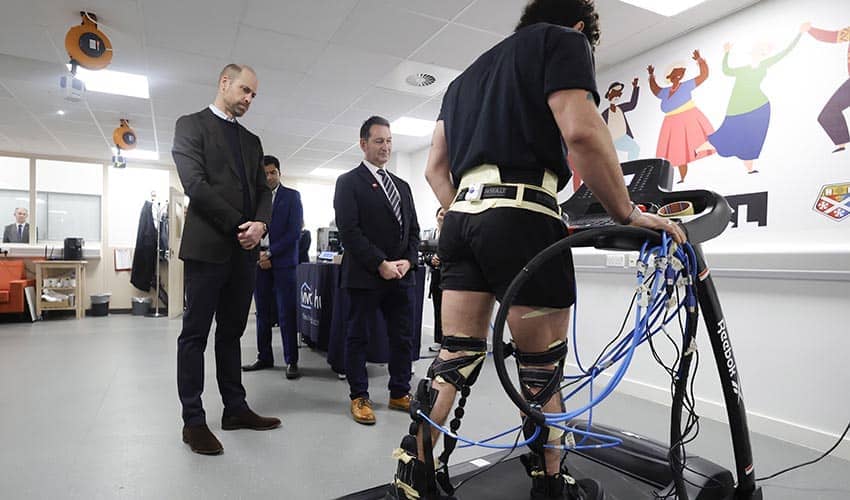
22 January 2026
Prince of Wales visits UWE Bristol to see pioneering robotic tech tackling societal health challenges
The Prince of Wales visited the Bristol Robotics Laboratory (BRL) at the University of the West of England’s (UWE Bristol) Frenchay campus today (22 January 2026) to learn about the pioneering robotic technologies being developed to help the ageing and disabled population maintain mental and physical wellbeing and remain independent for longer.
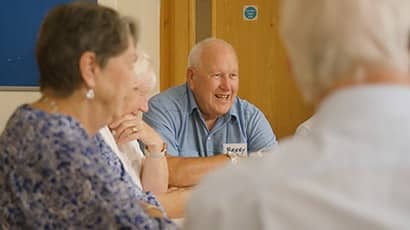
21 January 2026
Dementia support groups developed by professor adopted across globe
A programme started by a UWE Bristol academic to provide emotional and practical support for people with dementia is now being adopted around the world.

17 December 2025
Findings revealed from first UK study into experiences of mothers who are survivors of rape pregnancy
UWE Bristol academics have revealed the findings of the first UK-based study of the experiences of mothers who are survivors of rape pregnancy.

11 December 2025
Social media influencer work is far more demanding than it looks, research finds
A study exploring the mental health impacts of social media influencer work has revealed that life online is far more demanding than it appears.

25 November 2025
Health-tech start up MyCelsius launches breakthrough cooling tech for hot flushes developed at UWE Bristol’s Launch Space
A pioneering Bristol-based health-tech company developing cutting-edge cooling technology for hot flushes has credited UWE Bristol’s Launch Space incubator with playing a key role in accelerating its product development.

14 November 2025
Lecturer wins prestigious Times Higher Education award for innovation in teaching
A senior paramedic science lecturer at UWE Bristol has been named the most innovative teacher of the year in the Times Higher Education Awards 2025.
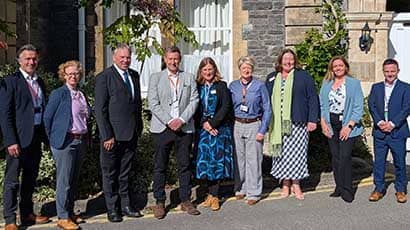
13 November 2025
Alliance Medical and UWE Bristol launch UK’s first PET-CT postgraduate certificate
In a move set to transform imaging education, Alliance Medical (AML) and UWE Bristol have joined forces to co-design and develop the UK’s first PET-CT Postgraduate Certificate (PG Cert).

17 July 2025
Want social change? A deeper understanding could be key, study suggests
New study suggests a deeper understanding of social change could help close the gap between challenges and actions, especially on issues like climate change.
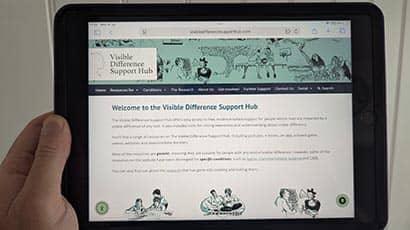
16 July 2025
Researchers launch support hub for people with visible differences and their families
A first of its kind website offering evidence-based psychological support for people with visible differences and their families has been launched by university researchers.
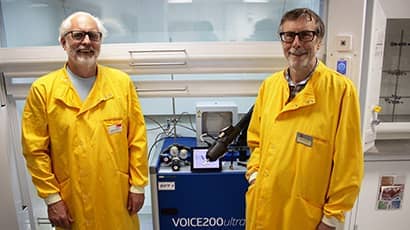
11 July 2025
Wound dressings developed with support from UWE Bristol to be launched by global firm
Technology that a team of UWE Bristol scientists helped develop to aid the healing of chronic wounds will be used in new ‘smart dressings’ being launched by global medical company.
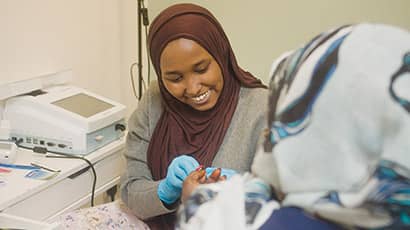
10 July 2025
Researcher awarded funding to develop digital health platform that connects people to local services
A UWE Bristol academic has received funding to develop an online platform that connects people to local community organisations offering health and social care support.
You may also be interested in

Media enquiries
Enquiries related to news releases and press and contacts for the media team.
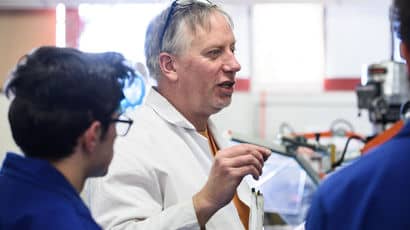
Find an expert
Media contacts are invited to check out the vast range of subjects where UWE Bristol can offer up expert commentary.
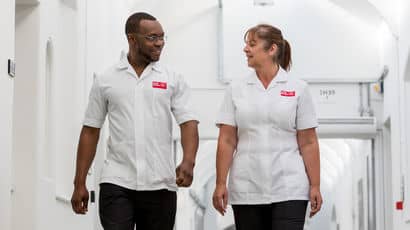
School of Health and Social Wellbeing
The School of Health and Social Wellbeing is home to all our courses and research related to this varied and rewarding sector.

Research
Our active, collaborative research community of bold, original thinkers break boundaries, immerse themselves in the now and open the way to new futures.






